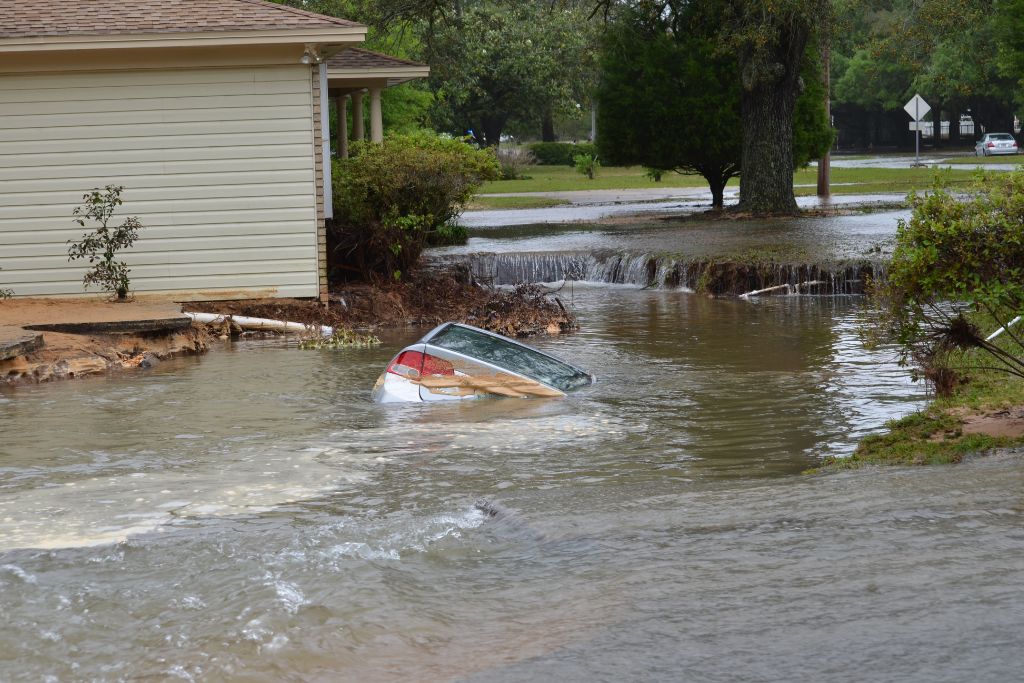Four people were killed and thousands of homes and businesses were damaged in last week’s Auckland floods. Speaking to reporters, newly-elected PM Chris Hipkins and Auckland’s Mayor attributed the events to climate change.
—
Climate change is “real” and “with us,” the newly-appointed New Zealand PM Chris Hipkins told local outlet 1News on Tuesday in the wake of last week’s devastating Auckland floods.
Four people have died and thousands of homes and businesses were damaged after heavy rain on Friday resulted in flash floods in the country’s largest city. Weather watchers confirmed it was the wettest day on record, with 249mm of rainfall in just 24 hours. The previous 24-hour record of rainfall was 162mm, dating back to 1985, according to MetService.
Flash floods, as the name suggests, are the result of a sudden and rapid rise of water levels in low-lying areas. They typically occur when rainfall in urban environments falls faster than the ground can absorb. These weather events are incredibly dangerous and can often lead to fatalities due to their destructive power and incredible speed.
Flooding has been made more likely by climate change, according to a 2021 study. In the case of Western Europe, downpours in the region, which caused the flash floods that killed nearly 200 people, are now 3-19% heavier due to human-caused warming. For countries that are already prone to rainy seasons, particularly in Asia, climate models predict climate change will lead to more intense flooding and prolong existing monsoon seasons. In New Zealand, about one-third of the population lives in areas prone to flooding, according to government figures.
“We are going to have to deal with more of these extreme weather events in the near future; we need to be prepared for that and we need to do everything we can to combat the challenges of climate change,” said Hipkins, warning Aucklanders to brace for more heavy rainfall.
Severe Weather Warnings have just been updated. Slightly less rain expected for Northland and Auckland now but still Red Warnings for Northland S of Whangaroa Harbour, Auckland N of Orewa, Coromandel Peninsula, and Bay of Plenty W of Kawerau. Details at https://t.co/qHyE5zzql5 pic.twitter.com/lAdkmNDoTv
— MetService (@MetService) January 31, 2023
Heavy rain warnings were in place for Auckland, Coromandel Peninsula, and Northland from Tuesday to Wednesday, with the latter forecast to be hit the worst by a combination of rain, thunderstorms, and strong winds.
Friday’s downpour was something that “non of us had ever seen before or even imagined,” Auckland’s mayor Wayne Brown told reporters, adding that he “agrees” with the Prime Minister in attributing the dramatic events to climate change.
Despite having a small share of global GHG emissions, New Zealand’s per capita gross emissions are high. The country has set several domestic and international greenhouse gas emissions reduction targets in recent years. In October, former PM Jacinda Ardern proposed the world’s first agricultural emissions reduction plan to put the country on track to meet its 2030 methane emissions reduction target, requiring farmers to pay a regulated price for the greenhouse gases emitted by their agricultural activities and livestock.
You might also like: New Zealand Proposes ‘World-First’ Tax on Farmers for GHG Emissions


















